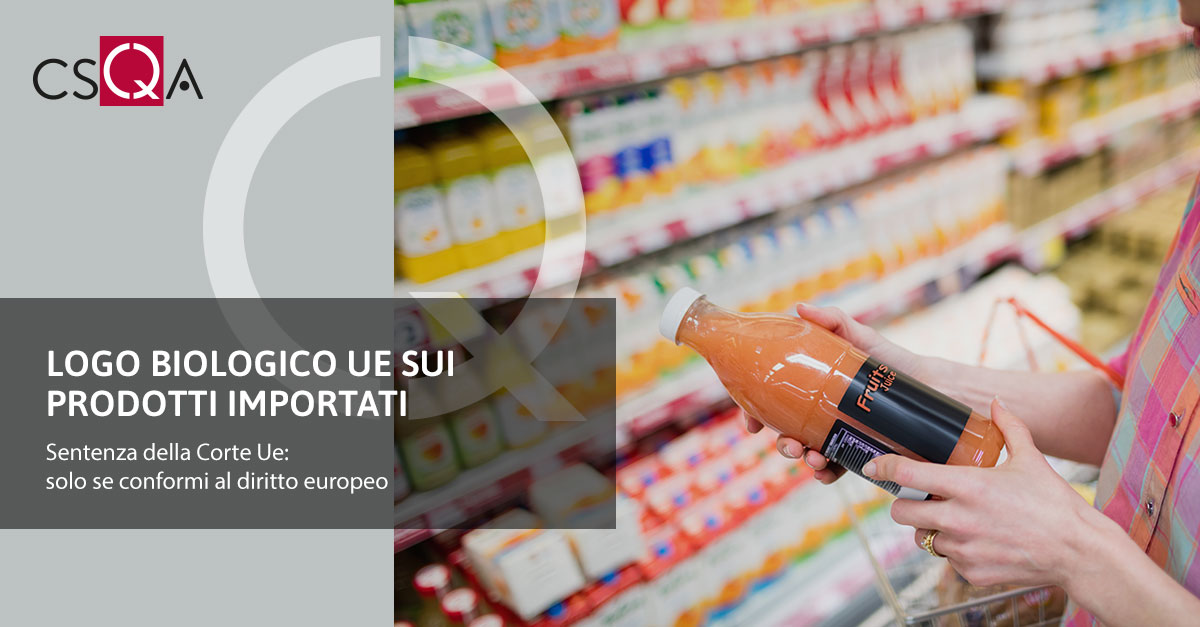 A food product imported from a third country can only bear the European Union organic production logo if it meets all the requirements of EU law.
A food product imported from a third country can only bear the European Union organic production logo if it meets all the requirements of EU law.This also applies if the third country's production rules are recognised as equivalent to those provided for by Union law.
The product may however bear the organic production logo of the third country .
This is what the Court of Justice of the EU has found, which has ruled on the labelling of organic products.
The prohibition on using the European Union organic production logo for products produced in a third country in accordance with rules which are only equivalent to those laid down by Union law also extends to the use of terms referring to such production , explains the Court.
However, provided that a product complies with those rules, the organic production logo of the third country may be used in the Union for such products, even when it contains terms referring to organic production.
The case of the drink with the organic production logo and its competitor made in the USA
The case comes from Germany where Herbaria produces a drink composed of a mixture of fruit juices and extracts containing, in addition to organic products, non-vegetable vitamins and iron gluconate.
The packaging of this product bears the Union organic production logo.
German authorities ordered the company to remove the EU organic production logo because the product did not comply with the requirements of the organic labelling regulation.
The latter, in fact, allows vitamins and minerals to be added to processed products bearing the term "organic" only if their use is required by law, which is not the case for the drink in question.
However, Herbaria has argued before the German Federal Administrative Court that its product was treated unequally and that it was not subject to such a ban on a similar product, also containing non-vegetable vitamins and minerals, imported from the United States .
The United States is recognized as a third country whose production and control standards are equivalent to those of the Union .
This means that products originating from that third country which comply with the production rules of that third country can be marketed in the Union as organic products.
For Herbaria, this recognition would allow competing American products to bear the Union organic production logo, and the related terms, on the simple condition that they comply with US production standards, i.e. even if they do not comply with the production standards of Union law.
The Court considers that “a product imported from a third country and manufactured in accordance with production and control rules recognised as equivalent to those laid down by Union law may not use either the Union organic production logo or terms referring to such production unless it is a product which fully complies with the production rules laid down by Union law”.
Otherwise, there would be an ambiguity capable of misleading consumers because, explains the Court, "the Union organic production logo aims to inform consumers clearly that the product on which it appears complies fully with all the requirements of Union law, and not only with rules equivalent to those requirements".
The Court then notes that " the organic production logo of a third country may be used in the Union for such imported products , even when it contains terms referring to organic production. Indeed, such a logo is not capable of giving the impression that the imported products in question comply with all the Union production and control rules". (Source: https://www.helpconsumatori.it/ )